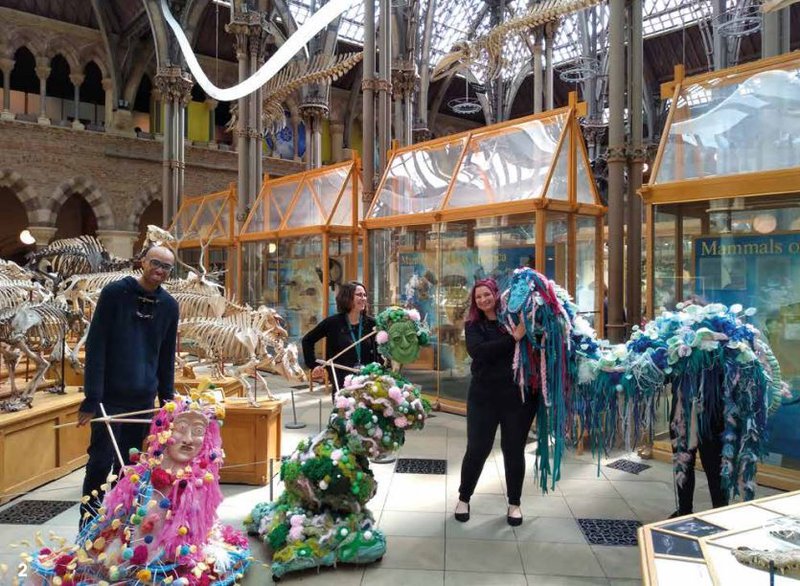Beautiful Bacteria: Science, art and SEND

October 2018 saw the opening of Oxford University Museum of Natural History’s (OUMNH) Bacterial World: The Untold Story of Bacteria exhibition. Funding from Biotechnology Biological Science Research Council (BBSRC) enabled them to run a science-art engagement project alongside the exhibition.
The project bought together staff from the museum with pupils from a local special academy, The Iffley Academy, and an artist, Georgina Davy. The academy is for young people up to the age of 18 who have complex special educational needs and disabilities. All students on this project were working towards Arts Award qualifications.
Dr Francis Colles, from the University of Oxford, visited their school to answer their bacteria related questions. She also helped prepare them for a visit to the exhibition where they were guided through the exhibition by a curator.
Students then went to work with Georgina for two days. They took part in carefully designed workshops to incorporate a range of activities and materials to engage all students, including activities such as finger knitting, fringing and pom-pom making.
Georgina created large scale puppet structures on which the textiles from the students were mounted. The students were delighted to see the finished puppets and spent a morning being puppeteers, learning how to work together and move the puppets.
Georgina says of the experience: ‘The students’ enthusiasm for learning was inspiring. I was blown away by their individual artistic talents and fantastic imaginations, in particular their highly detailed bacteria designs, and their love for puppets and puppetry’
The project was celebrated and exhibited at the OUMNH, the students came to see their creations and were treated to a behind the scenes tour. All ten students achieved their Arts Award. What’s more, they also learnt how to work as a team, they met new people and explored a cultural place enhancing their social capital and their confidence grew each time they visited.
Key learnings from working with SEND communities:
Working with SEND students for the first time can be daunting. Throughout this project museum staff worked with the class teacher who had detailed knowledge of each student.
Consider the activities you plan on running with SEND students. Sensory issues were anticipated in this project e.g. handling clay, action was taken to mitigate this and they provided gloves.
Consider the environment. The museum was open half an hour early to allow the group to settle before other visitors arrived.
Build relationships with SEND students and their teachers. Museum staff, students and teachers met multiple times throughout this project allowing trust and confidence to build.
